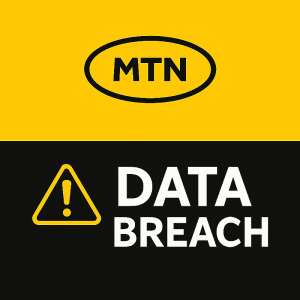
In a world increasingly driven by data, a breach is more than a technical mishap — it is a violation of trust, security, and the fundamental right to privacy.
Recently, MTN Ghana confirmed a data breach affecting 5,700 customers. While the company has issued statements regarding mitigation, this incident demands deeper scrutiny. It brings into sharp focus the questions: Are organizations genuinely protecting our data? Are regulators ready to enforce real accountability?
What is a Data Breach?
A data breach occurs when sensitive, confidential, or protected information is accessed, disclosed, or used by an unauthorized party. In the context of MTN Ghana, it could involve exposure of personally identifiable information (PII) such as names, phone numbers, account details, and potentially even sensitive financial or biometric information.
But beyond the mere loss of data, it is the erosion of trust that inflicts the deepest wound.
The Implications: Why This Breach Matters
The exposure of personal data can lead to:
Identity theft and financial fraud: Attackers may impersonate customers to steal money, commit crimes, or manipulate services. Social engineering attacks: Phishing, smishing, and fraud attempts can dramatically increase. Emotional distress: Victims suffer anxiety, loss of control, and potential reputational harm. Loss of consumer confidence: If customers feel unprotected, they may abandon services or demand stronger legislative action.
This breach is not just about 5,700 individuals; it shakes the foundations of public trust in digital services.
Regulatory Expectations: The Role of the Data Protection Commission (DPC) Ghana
Under the Data Protection Act, 2012 (Act 843), the Data Protection Commission (DPC) is empowered to:
Investigate the breach through formal inquiries. Order mandatory notifications to affected individuals (data subjects) in clear, accessible language. Impose administrative fines or sanctions if MTN Ghana is found negligent or non-compliant. Audit MTN Ghana’s security measures to ensure future robustness. Require remedial action plans, including improvements to cybersecurity and staff training.
This is not optional. Under Act 843, Section 32 obliges data controllers to implement adequate security measures to protect personal data — failure to do so attracts serious consequences.
If regulatory action is weak, it sets a dangerous precedent: the normalization of negligence.
What Can MTN Customers Do Now?
In the face of uncertainty, customers must act swiftly to protect themselves:
Be vigilant: Scrutinize SMS, emails, and calls for signs of phishing or fraud. Change passwords and PINs: Especially for linked services (e.g., MoMo accounts, customer portals). Monitor financial transactions: Report any suspicious activity immediately. Exercise data rights: Customers can formally request information from MTN on what data was breached and seek assurances on corrective actions. File complaints: Victims have the right to petition the DPC if they feel their rights are being ignored.
The Broader Questions: Who Will Be Held Accountable?
As an industry practitioner, I pose the critical questions:
Are corporate executives facing real consequences for failures in data protection? Is the Data Protection Commission adequately resourced and independent to enforce the law? Are Ghanaian consumers being empowered with real digital rights education? When will data protection stop being “an IT issue” and start being a “boardroom issue”?
Until regulatory enforcement becomes visible, predictable, and strong, breaches will continue to rise — and ordinary citizens will continue to pay the price.
Final Thoughts: Privacy Is a Right, Not a Privilege
The MTN Ghana data breach must be treated as a national wake-up call — not just for telcos but for every organization entrusted with personal data.
Data controllers must embed privacy by design, data processors must be vigilant custodians, and regulatory bodies must wield their powers boldly and transparently.
Above all, data subjects — the people — must know that their dignity is not for sale.
Because in the end, safeguarding personal data is not just a technical requirement; it is a moral obligation to every human being behind the data.


